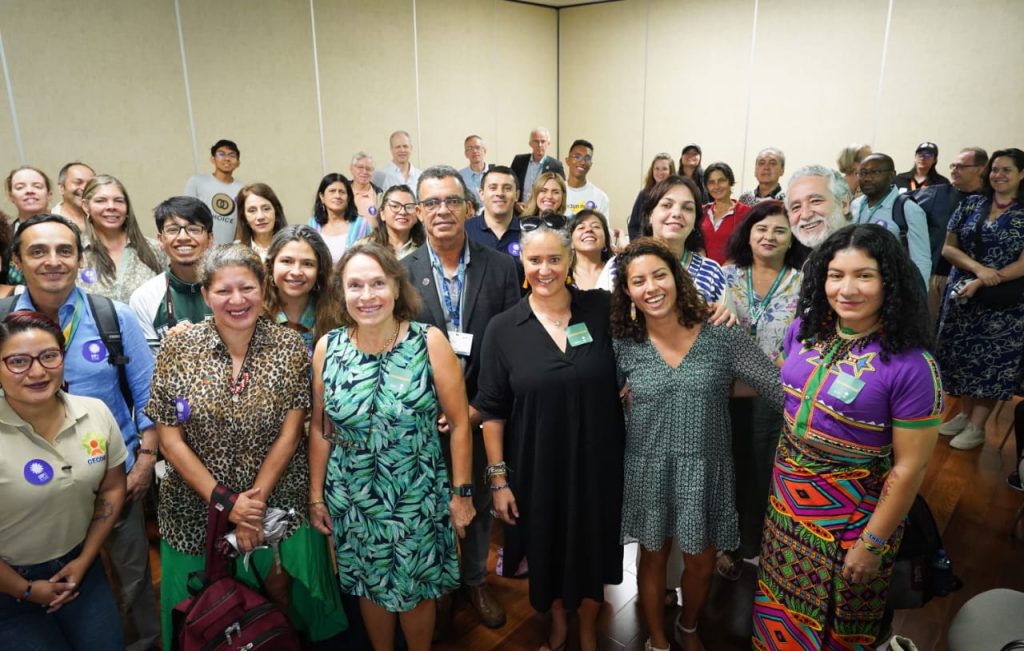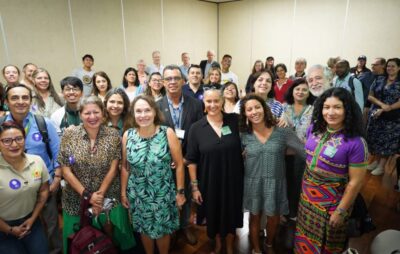To 2025: Every moment matters
18/12/2024
Below is the introduction to our latest newsletter. To read newsletters in full, sign up now or subscribe on Linkedin.
Dear Planetary Steward, dear friend of the Global Commons Alliance,
For many of us, this is traditionally a reflective time of year. For those working on the environment, this year’s reflection is a particularly tough one. The planet is still heating at unprecedented levels, impacting lives through food costs, drought and floods. This year’s three COPs—on climate, biodiversity and desertification—either failed outright, or delivered limited outcomes that did not address the scale of the challenge. And a series of political upheavals around the world will make progress even more challenging going forward.
But amidst the big news stories, it’s easy to overlook many of the positive achievements, which are hard won along the way. Today, progress is expressing itself as a series of often quiet but still catalyzing moments, each one a thread in a giant blanket of collaboration.
If we imagine it is 2050 and the regeneration of our planet is well underway, then looking back, 2024 was a pivotal year for Global Commons Alliance. Here are just a few of our highlights:
We visualized the Safe and Just future in a series of images which were made by futures design company Superflux and published on the WEF blog during Davos, where Earth Commissioners were present. We shared insights from companies who piloted the first ever science-based targets for nature.
In January we also co-hosted a workshop with Copenhagen to investigate what living within Safe and Just Earth system boundaries would involve, together with representatives of Helsinki and Oslo, Earth Commission, SBTN and partner organizations. This resulted in a joint vision for the three cities and the development of a program that will enable them to understand how to pursue a more equitable and just urban development path, that is both enabled and constrained by nature.
In March I joined a panel at Villars Institute Summit on ecological tipping points, laying out the requirements for “course correction” according to Earth system science to safeguard and restore natural systems for resilience. This includes radical redistribution of access to natural resources between rich and poor, and redesigning our economy to embed the values of nature.

Safe and Just science-informed artwork by Superflux, for the Earth Commission/Global Commons Alliance
Determined to engage every section of society to tip the scales for action, in June we returned to Villars to discuss the economics of living within planetary boundaries with young people – because it is absolutely key that this new generation understands Earth system science so they can apply it to their coming leadership. However, in order to propel the bold action we need from political leaders, including in the US, voters everywhere need to care about the global commons. We released data on public attitudes towards planetary stewardship and economic transformation with Earth4All and IPSOS Mori, revealing that 71% of citizens in 18 G20 countries believe the world needs to take urgent action on climate and nature. A second set of datareleased in September showed 72% of those surveyed even support making it a criminal offence for governments or leaders of large businesses to approve or permit actions which cause serious damage to nature and climate.
We co-hosted the Global Artivism Conference in Tshwane (Pretoria), with diverse partners to help foster cultural activism for a Safe and Just world. Our many activities in the lead up to and during Climate Week NYC, Summit for the Future and the UN General Assembly, included the launch of media initiative EPIC, Systems Change Lab’s data on buildings and cities, and the soft launch of the Planetary Health Check, a joint initiative of Earth HQ. As well as awarding 18 grants supporting initiatives driving corporate accountability for nature on every continent over the past year, Accountability Accelerator also announced it will host—on an interim basis—validation services for science-based targets for nature.
The Earth Commission published new science in The Lancet Planetary Health. Not only does it reveal that if we reflect Earth’s limits in our economies, technologies and governance systems, it’s possible to secure conditions for a Safe and Just future for humanity—but it also provides us with the world’s first global metrics that can be translated to different geographies and contexts in order to get us there.

GCA and partners at COP16 in Colombia
In October at our events during the COP16 talks in Colombia, we shared Earth system science insights with a wide range of stakeholders—including Indigenous and traditional leaders—to better understand how this may add value to their efforts to conserve nature alongside addressing climate change. Translating the science into practical business plans comes next. Following the launch of its new methods and accompanying corporate manual and online target setting guide, SBTN announced that the first-ever science-based targets for both freshwater and land have been adopted, proving that companies now have a clear and credible pathway to take ambitious action for nature alongside climate. This is essential – not just to avoid risking earnings – but also in creating an equitable, nature positive, net-zero future for all.
As we move forward with a new strategy, we look forward to working closely with you in 2025 to mobilize citizens, companies, cities and countries to accelerate systems change, and become better guardians of the global commons.
Above all, thank you. Every collaboration, and every moment, matters.
All my best,
Jane
Subscribe on email or Linkedin to get our bi-weekly newsletter.
